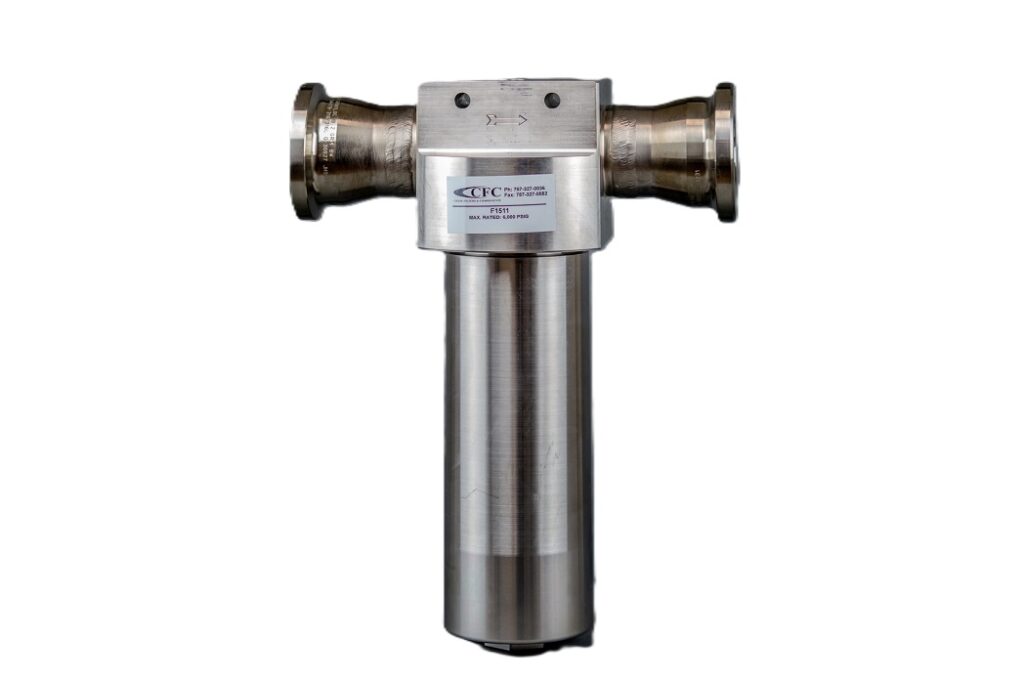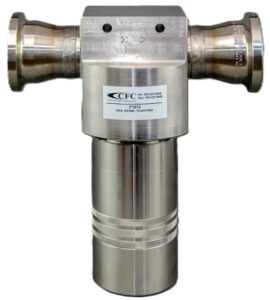October 15, 2025
The Importance of Industrial Filters in Oil and Gas Operations
Clean, contaminant-free oil is important for the safe and efficient operation of heavy-duty equipment in the oil and gas industry. As oil circulates through complex systems, it can accumulate particles, sludge and other impurities that lead to equipment wear, blockages and operational disruptions. Oil filtration is crucial in maintaining fluid quality, protecting components and upholding safety standards for many purposes, such as refineries, manufacturing and drilling operations.
This guide explores different types of oil filters, along with common industry standards and testing methods that ensure safety and performance. Read on to learn about the significance of oil filter systems in industrial applications, including their key functions and benefits.
Key Benefits of Effective Industrial Filters
Below are the primary advantages and functions of high-quality oil filters for industrial applications:
Safeguards Industrial Equipment From Contaminants
Clean oil maintains proper lubrication, reduces abrasive contact and keeps machinery running smoothly. Without an efficient lubricating oil filter, particles can form deposits that damage equipment and increase maintenance requirements.
Oil filters are engineered to capture a range of particle sizes suspended in oil. For example, hydraulic oil filters use porous media to block particles, while smaller particles may adhere to the filter pores over time. Removing particles such as dirt, dust and metal shavings prevents premature equipment deterioration and protects against sudden failure of critical components like pumps, valves and bearings.
Minimizes Maintenance Expenses and Downtime
Well-filtered oil leads to fewer breakdowns and less frequent maintenance needs. With reduced wear on parts and fewer emergency repairs, facilities can cut costs while maintaining greater operational uptime.
This preventive approach contributes to smoother worker productivity and helps avoid the additional cost of part replacements and emergency repairs.
Extends Oil Life and Equipment Longevity
By preserving oil purity, filters delay the need for frequent oil changes, helping maximize the return on expensive lubricants. Clean oil also minimizes friction and internal stress on components, prolonging machine life.
Over time, using industrial oil filters delivers long-term savings, decreasing the need for early equipment replacements.
Improves System Efficiency and Supports Environmental Safety
A clean oil system improves energy and reduces safety risks tied to overheating or mechanical failure in demanding industrial environments. Optimal lubrication minimizes friction and heat buildup, enabling equipment to perform more consistently and efficiently throughout operations.
Moreover, by extending oil’s lifespan and reducing the frequency of oil changes, efficient oil filters decrease waste and the overall consumption of oil resources, contributing to a smaller environmental footprint.
5 Types of Industrial Oil Filters
There are different types of oil filters suited for different purposes, such as the following:
- Full-flow oil filter: Commonly used as the primary oil filter in vehicles and heavy equipment, full-flow oil filters ensure a continuous supply of clean oil throughout the engine. It’s designed for efficient oil movement even in cold temperatures or under heavy mechanical stress. Full-flow oil filters are reliable in environments with extreme weather or demanding workloads.
- Bypass oil filter: Installed as secondary filters, bypass oil filters work in tandem with full-flow oil filter systems. They partially process the oil to capture fine particles that primary filters fail to catch. They significantly improve oil purity and maximize equipment life, such as compressors, turbines and other large industrial machinery.
- Hydraulic filter: This type of filter removes particulate and water-based contaminants to protect components in hydraulic systems. Hydraulic filters come in various configurations depending on where they’re installed in the system. Suction line filters prevent contaminants from entering the pump by filtering the oil drawn from the reservoir. Return line filters clean the fluid as it flows back to the tank, and inline filters offer continuous filtration while placed directly in the hydraulic line.
- Coalescing filter: Coalescing filters are used to separate liquids from air or gas mixtures in industrial processes. Coalescence is a process that involves two bubbles or droplets of a substance that combine into one large droplet. This easily gets filtered because of its weight. Coalescing filtration can remove particles as tiny as 0.1 microns or smaller, ensuring high purity levels in demanding air and gas operations.
- Centrifugal filter: Centrifugal filters use a rapid spinning motion to separate and remove particles such as soot, sludge, solid particles and other microscopic contaminants from lubricating oil. These filters are commonly used in heavy-duty engines and marine vessels that require high-efficiency oil filtration without constant filter replacement. They enhance system efficiency and support optimal oil lubrication in demanding applications.
Customized Oil Filters for Specific Industrial Applications
Industrial oil filters can be customized to meet unique requirements. For example, Chase Filters & Components’ series 52 is a high-pressure filter engineered for critical environments that require utmost contaminant control. It’s suitable for oil field services, aerospace, petrochemical plants and power generation systems.

The filter can be tailored with a range of material options, including stainless steel, fiber metal felt, porous sintered stainless steel or micro-glass elements to match specific contaminant profiles and operational needs.
Regulatory Standards and Testing for Industrial Oil Filtration
Regulatory compliance for oil filters in the U.S. is supervised by organizations such as the International Organization for Standardization (ISO) and the American Society for Testing and Materials (ASTM). The following are examples of common oil filtration regulatory standards:
- ISO 16889: This standard outlines the multi-pass filtration testing procedure for assessing oil filter particle retention, dirt-holding capacity and differential pressure. The method simulates various conditions to test the filter’s ability to perform under varying contaminant loads.
- ISO 4406: The ISO 4406 specifies the standard for coding and quantifying solid particle contamination in hydraulic fluids. Using a universally accepted cleanliness code allows engineers to monitor oil purity levels and take action before the integrity of the system is compromised.
- ISO 11170: This standard evaluates hydraulic, mechanical and separation capabilities, ensuring that filters can withstand demanding operational conditions and maintain optimal filtration over time. It provides a standardized test sequence for verifying the performance of industrial oil filter elements in hydraulic fluid power systems.
- ASTM D6824: Evaluating the filterability of turbine fuels in aviation, the ASTM D6824 helps identify issues that significantly impact filtration efficiency. These include factors such as fuel degradation, particulate contamination and filter media incompatibility.
- ASTM D4898: This testing method measures insoluble hydraulic fluid contamination using the gravimetric analysis. ASTM D4898 testing helps identify buildup that can clog filters, impair equipment and lead to premature system failure.
Contact Chase Filters & Components for High-Quality Industrial Oil Filters

Maximize the protection and longevity of your equipment with reliable, high-performance oil and gas filters from Chase Filters & Components. Whether your facility requires oil filtration for upstream, midstream, or downstream applications, we provide a wide range of oil and gas filters, such as hydraulic and pneumatic filters, coalescing filters, strainers and portable filtration units.
Chase Filters & Components has been a leading filter manufacturer serving all major industries for over 30 years, including automotive manufacturing, chemical processing, specialty gas and aerospace applications. Trust us to provide high-pressure filters for oxygen, gas, air, engine lubricant, fuel, water and hydraulic fluid. In addition to off-the-shelf filters, our knowledgeable team builds custom industrial filters according to your unique specifications.
Contact us today for high-performance industrial oil filtration solutions that suit your needs.
